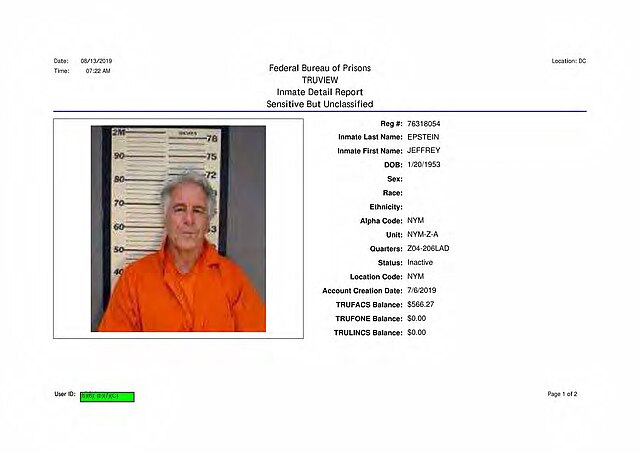Listen live from 9AM - 1PM Central on WNUR 89.3FM / stream at www.thisishell.com / subscribe to the podcast
9:10 - Sociologist Peter Frase examines the future beyond climate change, capitalism and other disasters.
Peter is author of the new book Four Futures: Life After Capitalism, part of the Jacobin series from Verso Books.
10:00 - CIP Americas director Laura Carlsen finds anger and organization two years after the crime of Ayotzinapa.
Laura wrote the article Ayotzinapa’s Message to the World: Organize! for NACLA.
10:30 - Political scientist Gustavo Setrini profiles the rising Primavera Estudiantil social movement in Paraguay.
Gustavo wrote Paraguay's Student Spring for NACLA.
11:05 - Writer George Ciccariello-Maher explores the past and future of radical democracy in Venezuela.
George's new book Building the Commune: Radical Democracy in Venezuela is part of the Jacobin series from Verso Books.
12:05 - Invisible Institute's Jamie Kalven details the mechanisms of silence within the Chicago Police Department.
Jamie wrote the 4-part series Code of Silence for The Intercept.
12:45 - In a Moment of Truth, Jeff Dorchen talks about his one unconscious non-racist reflex.
Hoping he doesn't have time to touch on the others then.
Here's what Chuck is reading to prepare for Saturday's show:
Four Futures: Life After Capitalism - Peter Frase [Verso]
Paraguay's Student Spring - Gustavo Setrini [NACLA]
Building the Commune: Radical Democracy in Venezuela - George Ciccariello-Maher [Verso]
Code of Silence - Jamie Kalven [The Intercept]
On This Day in Rotten History...
On this date in the year 314 – (1,702 years ago) – two rival Roman emperors met in battle on a field in what is now Croatia. The armies of Licinius and Constantine fought all day until Constantine led a cavalry charge that turned the tide. Twenty thousand of Licinius’s men were killed, along with an unknown number on Constantine’s side. But after nightfall, Licinius managed to retreat and escape with remnants of his army. For the next ten years, the two co-emperors would maintain an uneasy truce in the sprawling, fragmented empire. But in the year 324, another civil war would erupt between them. Once again, Constantine defeated Licinius, and this time he had him imprisoned. A year later, he had him hanged. Constantine was later declared a saint by the Orthodox, Anglican, and Byzantine churches, for having decriminalized Christianity in the Roman Empire.
On this date in 1871 – (144 years ago) – a fire broke out in Chicago that would burn down the city center over the next three days. The Great Chicago Fire killed some three hundred people in the city, destroyed a third of its real estate, and left more than one hundred thousand people homeless. To this day, its original cause remains unknown, despite many theories advanced by historians. The popular myth of Mrs. O’Leary’s cow kicking over the lantern was debunked long ago. Several other major fires occurred on the same day in Michigan and Wisconsin — including a forest wildfire in and around Peshtigo, Wisconsin, that was far more deadly than the one in Chicago, killing an estimated two thousand to twenty-five hundred people. Some people have speculated that the simultaneous fires across the Great Lakes region were perhaps ignited by red-hot meteorite fragments fallen through earth’s atmosphere from an exploding comet. But scientists have pointed out that hot meteorites cool off before reaching the ground, and that the fires were probably just due to high winds in the region following an unusually dry summer.
On this date in 1952 – (63 years ago) – during the morning rush hour at the Harrow and Wealdstone station in London, a high-speed express train arriving from Scotland plowed into the rear end of a passenger train standing at a platform. Within moments, another express train came smashing into the other two. Sixteen... read more
Listen live from 9AM - 1PM Central on WNUR 89.3FM / stream at www.thisishell.com / subscribe to the podcast
9:10 - Author Jennifer Rutledge examines the global social policies behind school lunch programs.
Jennifer is author of the new book Feeding the Future: School Lunch Programs as Global Social Policy from Rutgers University Press.
10:05 - Media scholar Mara Einstein decodes the corporate hand behind news content on the internet.
Mara is author of the new book Black Ops Advertising: Native Ads, Content Marketing and the Covert World of the Digital Sell from OR Books.
11:00 - Journalist Steve Horn reports on the Obama administration's opening of public lands for oil and gas drilling.
Steve wrote the article Obama Admin Quietly Enables Oil and Gas Drilling on Public Lands and Waters, Weakens Endangered Species Act for DeSmog Blog.
11:35 - Our Man in Budapest, Todd Williams explains what the Hungarian migrant vote means and doesn't mean.
Todd is a migrant himself, but he'll be in Sacramento for this segment, for the first time in seven years. He'll be talking about that too.
12:10 - Live from Mexico City, Laura Carlsen profiles the movement emerging from the crimes of Ayotzinapa.
Laura wrote the article Ayotzinapa’s Message to the World: Organize! for NACLA.
12:45 - In a Moment of Truth, Jeff Dorchen gets real about idealistic politics.
Jeff is already sitting backwards on a chair in his "gets real" pose.
Listen live from 9AM - 10AM Central on WNUR 89.3FM / stream at www.thisishell.com / subscribe to the podcast
9:10 - Walter Mosley explores the mysteries of life beyond the demands of capitalism and socialism.
Walter is author of Folding The Red Into The Black: Or, Developing A Viable Untopia For Human Survival In The 21st Century from OR Books.







